Recently I have come across a lot of articles in the newspaper where I read about the dreadful deaths of giant sea mammals. In most of the cases, kilos of plastic material were recovered from their stomachs. Yes, the plastic materials which we humans are using blindly every day. Plastic makes things easier, quicker, and convenient; we are obsessed with it.
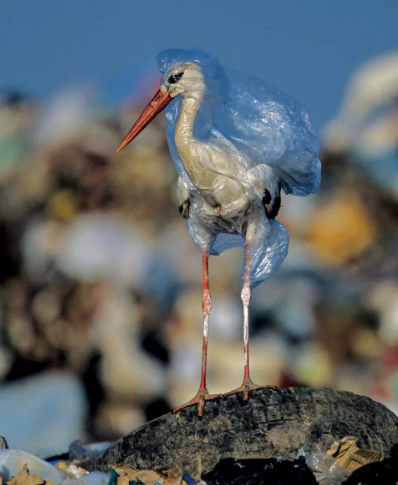
Every day you wake up in the morning, and pick up your plastic toothbrush afterwards you eat your cereals in a plastic bowl and then pack your lunch in the plastic tiffin box. You also use a plastic water bottle. Have you ever tried to notice how much plastic you are consuming in your everyday life? I bet most of us haven’t thought about it ever. Some of you might have already gone like blah why is she writing about such boring things. You simply don’t care right? Many of us have no clue how plastic is harming each one of us in many ways that we don’t even realize; it has an impact on the micro as well as macro levels.
Plastic is a problem. Something which was invented as a multi-purpose material has now taken a toll on our planet. People have produced around 9.1 billion tons of the stuff since the 1950s (which apparently weigh as equally heavy as 1600 Pyramids of Giza) – and the vast majority of that still exists in some form.
Plastic production has almost doubled up every decade since 1950. Single-use plastics such as straws, shopping bags, plastic cutlery etc. are the causing huge destruction to the environment and contribute towards 40% of the world’s plastic waste. It’s high time that each one of us should let go of our “Out of sight, out of mind” strategy.
I would not ask to quit plastic completely from our lives but I would definitely like to encourage all of us to start adapting little changes in our lifestyles. These tiny steps, if taken by each of us, would help to minimize the destruction caused by plastic.
Let’s take a look at some of the suggestions that might help us to reduce plastic waste.
Avoid One-Time Use Plastic
Straws, cutlery, shopping poly bags, plastic cups are some of the common examples that all us are using every day. It is not at all difficult to stop using these with immediate effect. Whenever you’re going to café just ask for a paper straw or you can choose to not use it at all. 500 million plastic straws are used every day in America. That’s enough to circle the Earth twice. Likewise, for beverages ask the vendor to serve you in a paper cup or glass rather than a plastic one.
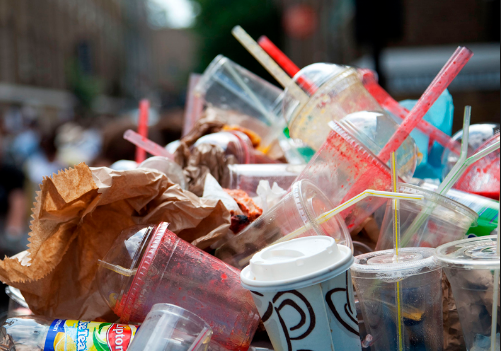
Carry your Water Bottle
One million plastic bottles are bought every minute around the world — and that number will top half a TRILLION by 2021. Less than half of those bottles end up getting recycled. Bottled water has always been a point of arguments among environmentalist. These are damaging the environment and every day millions of plastic water bottles are ending up in the landfill. It’s not tough to carry a small water bottle in your bag whenever you’re stepping out of the house for a long time. Try to refill your bottle from small cafes rather buying a new one.
Carry Reusable Shopping Bags
More than 1 million bags are used across the globe every day and annually, about 500 billion plastic bags are produced.
Try to make a habit of keeping a reusable shopping bag with you all the time. Maybe you can keep it in your car or scooty or in your bag, so even for your unplanned shopping, you’ll not need to take plastic bags. Although plastic bags have been banned in many cities now still some local vendors are using them. Encourage such vendors to use paper or cloth bags instead. Most reusable bags cost only a few bucks- a small investment to help out our planet.
Choose to Eat Fresh and Avoid Processed Food
If you have noticed the processed food always have plastic packaging materials. But when you buy fresh food it is devoid of any packaging and good for your health as well. Buying fresh peas or corns instead of the frozen ones is one way in which you can help in reducing plastic waste. And if you must buy processed food look for items packed in tetra packs, it has less plastic material. Your stomach and landfill both will thank you for being a little concerned.
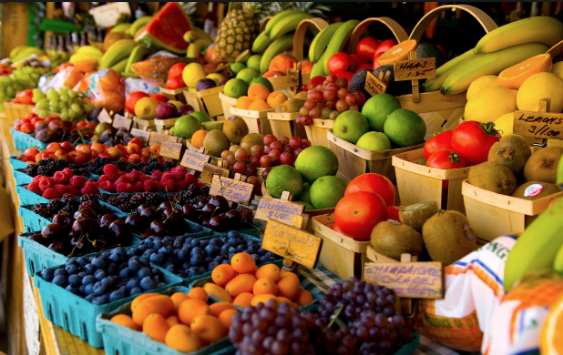
Use biodegradable Sanitary Napkins
Sadly sanitary napkins are made up plastic and end up in landfills where they take years to degrade or do not degrade at all. Well now biodegradable sanitary napkins are now available so just try to buy them. These are obviously not cheaper but a few more bucks for planet won’t do any harm. Also, you can use menstrual cups which are reusable. In case you’re not aware of menstrual cups, you can find more about menstrual cups on the internet. These are completely safe to use.
Do Not Use Plastic Pots for Plants
How ironic it looks; a plant in a plastic pot, on one hand, we are planting trees that will help our planet with greenery and on the other hand, we plant it in a plastic pot which will eventually increase the carbon footprint. Let’s stick to conventional methods of planting and use clay pots for plants.
Eliminate your Tupperware
Try to use glassware in the kitchen instead of Tupperware. This doesn’t mean that you start to throw out the plastic Tupperware; no just use them until they’re worn out and when you replace them just make sure you buy glassware. Likewise, you can eliminate plastic cutlery and dishes from your kitchen.
Stop Using Plastic Razor
Instead of tossing razor in the bin every month, switch to buy razors that let you change the blade. It’s a very simple way in which we can reduce our plastic waste.
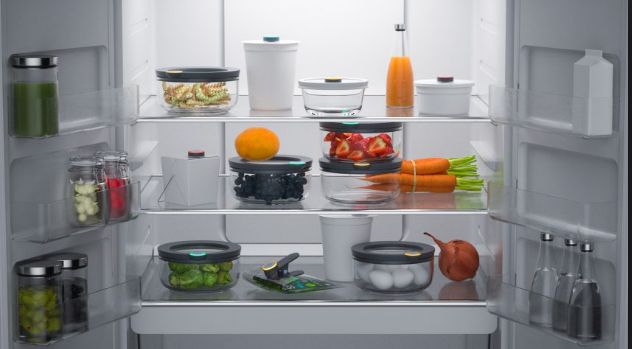
One More Reason to Quit Smoking
Did you know that cigarette filters are actually made of plastic? Every butt we put on the ground or in the bin if not recycled is contributing to plastic pollution.
If you’re not ready to take the step to quit, at least rethink about the lighter. Instead of buying plastic disposable lighters, consider investing in a refillable multi-use lighter or maybe a matchbox sometimes. It will be a great relief for birds and marine life who mistake their bright colours for food. Disposable plastic lighters are one of the most common items found in the Great Pacific Garbage Patch trash analysis.
Stop Using Cotton Buds
According to The Ecologist, “The plastic from cotton buds have been discovered in the stomachs of Loggerhead, Turtles, sea birds, and many species of UK-caught fish. The bits of plastic that aren’t eaten get broken down into micro-plastics — of which the dangerous effects are still unknown”. Remember this picture by Justin Hofman, which has gone viral sometimes back?

I hope you recognize the need for switching to organic cotton buds with paper stems.
Lastly, whenever you’re buying anything if it’s plastic, think twice. While we understand that avoiding plastic completely is near impossible, but please encourage yourself and others around you to avoid it when possible. Also, do not believe in the myths that most of us have regarding plastic-free life; we have to throw out all of our old plastic. And we have to go 100% plastic free immediately.
You don’t need to throw and replace all your plastic immediately. The key is to not buy more plastic in future. And remember even if we adopt a small change in our lifestyle that too will make a huge impact. Let’s come together to make our planet cleaner and better. Don’t forget to share your ideas for the Plastic-free lifestyle in the comment section below.
Pictures Source- Pinterest,NatGeo, Dezeen,U Konserve & Parade.
Facts Source- NatGeo






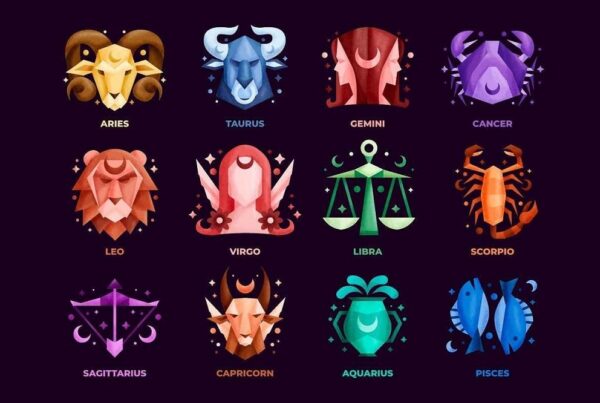
If somehow plastic consumption comes to a halt then what about the traders and manufacturers who makes them and trade? What about the lakhs of people in plastic industry? In a country like ours where unemployment is a major issue, is this really feasible?
Good awareness of plastic pollution.
Nice effort to make the human humane.